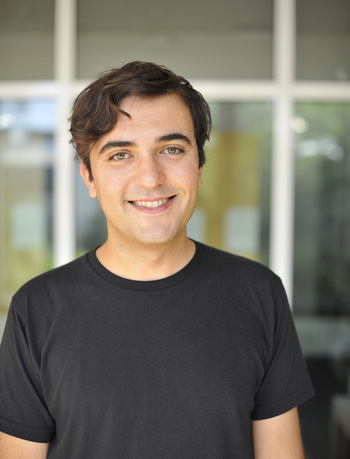Antonio Carbone

Center for Global History
Former Research Assistant (Wissenschaftlicher Mitarbeiter)
Urban History, Latin American History, Environmental History
Koserstraße 20
Raum A 392
14195 Berlin
Sprechstunde
Tuesdays 2–4 pm (please register per email)
Antonio Carbone taught and researched Global and Latin American history since 2015 at the Freie Universität. Previously he was a fellow of the DFG-financed interdisciplinary Graduate Program “The World in the City” at the Technische Universität in Berlin. During his fellowship, he was affiliated to the Columbia University in New York and spent several months in Buenos Aires and New York to consult local archives and libraries. His research project dealt with the urban history of Buenos Aires in the second half of the nineteenth century. He received his MA in “Historical Urban Studies” at the TU Berlin and his BA in “Philosophy” at Università La Sapienza in Rome. His main research interests range from the global urban history of the nineteenth and twentieth century with a specific regional focus on Latin America and Europe to environmental history and history of science.
Since 2015 Antonio is editor of the interdisciplinary urban studies journal sub\urban – zeitschrift für kritische stadtforschung.
Winter Semester 2017/2018
Theorie, Methode und Geschichte der Geschichtswissenschaft
Summer Semester 2017
Global vernetzte Räume: Lateinamerika aus einer stadthistorischen Perspektive
Winter Semester 2016/17
Summer Semester 2016
"Einführung in die Geschichte Lateinamerikas: lokale Strukturen und globale Ströme
Research interests:
Urban History, Latin American History, European History, Global History, Environmental History, History of Science, Urban Studies, Critical Theory.
Review of The City: A World History, by Andrew Lees. Journal of World History 28 (2017): 175–178
"Contested City: Buenos Aires, its Hinterland, and the Atlantic World in the Epidemic Years, 1860s-1870s" in Al servicio de la salud humana: La historia de la medicina ante los retos del siglo XXI. Edited by Alfons Zarzoso and Jon Arrizabalaga, 399-405. (2017)
“Umkämpfte Orte,” review of Risse im Raum: Erinnerung, Gewalt und städtisches Leben in Lateinamerika, by Anne Huffschmid. sub\urban – zeitschrift für kritische stadtforschung 4 (2016): 321–326.
“Historicizing ‘Urbanity’: Buenos Aires in the epidemic Years,“ Global Urban History Blog, December 3, 2015.
with Sabine Barthold and Botakoz Kassymbekova, “Tagungsbericht: Metropolitan Temporalities, 20.11.2014 – 22.11.2014 Berlin“, H-Soz-Kult, April 29, 2015.
translation into Italian of: Georg Wagner-Kyora, “Beste Bürgertradition” – la ricostruzione del Teatro dell´ Opera di Francoforte: una storia postmoderna (1946-1981). Storia Urbana 23 (2010): 23–64
Conference Papers:"Contested City: Buenos Aires, its Hinterland, and the Atlantic World in the Epidemic Years. 1860s-1870s" (paper presented at the Congreso de la Sociedad Española de Historia de la Medicina, Sant Feliu de Guíxols, June 15–17, 2017)
“The role of urban epidemics in reshaping Buenos Aires’ environmental regime” (paper presented at the conference of the European Urban History Association, “Reinterpreting Cities,” Helsinki, August 24–27, 2016).
“Port of the Atlantic and Capital of the Pampas. Buenos Aires in the Epidemic Years” (paper presented at the conference “Imperial Port Cities in the Age of Steam: Towards a Comparative History of Entanglements,” Berlin, July 14–16, 2016).
“Relocalizando el control en la primera epidemia de cólera en Buenos Aires: el caso de las comisiones parroquiales” (paper presented at the conference “VI Taller de Historia Social de la Salud y Enfermedad,” Rosario, October 15–17, 2014).
“Buenos Aires in the Time of Cholera: Fear, Compassion, and Urban Space, 1867–1869” (paper presented at the conference of the Urban History Association, Philadelphia, October 9–12, 2014).
“Buenos Aires in the Time of Cholera: Fear, Compassion, and Control.” (paper presented at the conference “Epidemic entanglements: Exploring the interrelation of cities and infectious disease”, Frankfurt, July 24–25, 2014).




